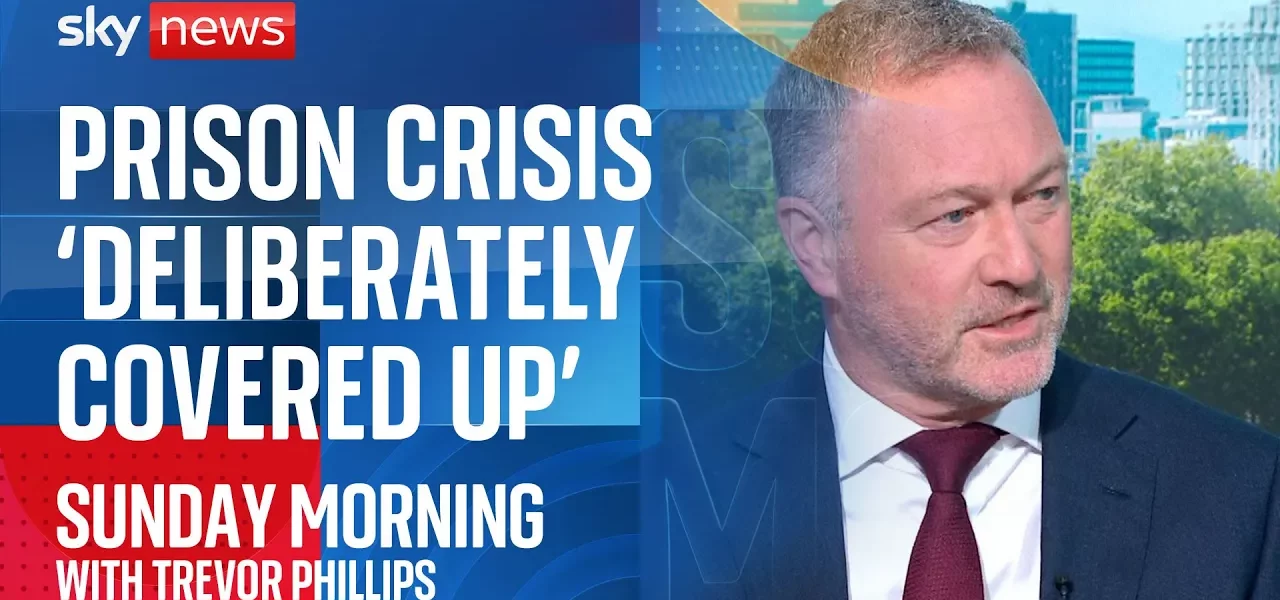Steve Reed’s Reaction to Fresh Tensions in Gaza and the Golden Heights

This article explores Steve Reed’s insights on the escalating tensions in Gaza and the Golden Heights, emphasizing the urgent need for a ceasefire, the release of hostages, and the pursuit of a two-state solution. We delve into the political implications and domestic issues surrounding these events.
Introduction
The recent resurgence of violence in Gaza and the Golden Heights has sparked a wave of reactions from political leaders around the world. Steve Reed, a prominent figure in the UK Labour government, has voiced his concerns over the heartbreaking images emerging from the region. His calls for an immediate ceasefire, the release of hostages, and unimpeded aid into Gaza highlight the urgent humanitarian needs and the potential for a lasting peace through a two-state solution. This article will provide a detailed examination of Reed’s statements and the broader implications for both international relations and domestic policies.
Current Situation in Gaza and the Golden Heights
The ongoing conflict in Gaza has escalated significantly, leading to renewed calls for a ceasefire. As images of the devastation circulate globally, the international community grapples with the dire humanitarian situation. Steve Reed’s reaction underscores the gravity of the situation:
- The need for an immediate ceasefire respected by both Hamas and Israel.
- The immediate release of hostages taken during the attacks on October 7th.
- The provision of unimpeded aid to Gaza for immediate support and long-term rebuilding efforts.
Reed emphasizes that these measures are critical to halt the suffering of civilians caught in the crossfire.
The Call for a Two-State Solution
In the pursuit of peace, Reed advocates for a two-state solution, which he believes is the only viable path to lasting stability in the region. This solution would ensure:
- A secure Israel.
- An independent and sovereign Palestine.
However, the current trajectory of the conflict appears to be moving away from this goal, as tensions spill over into neighboring regions like Lebanon, heightening fears of a broader regional war.
International Community’s Role
Reed stresses the importance of a unified response from the international community to exert pressure on both parties to adhere to a ceasefire. Key points include:
- The necessity of a coordinated approach to achieve a ceasefire.
- The role of international law in guiding Israel’s right to self-defense while ensuring humanitarian considerations are met.
- The importance of dialogue and diplomacy in preventing further escalation.
Without a concerted effort from global leaders, the prospects for peace remain bleak.
Domestic Political Implications
Beyond the international implications, Reed’s statements also reflect the Labour government’s approach to domestic issues. He addresses the financial challenges inherited from the previous government, emphasizing:
- The need for transparency in public finances.
- Plans to address the critical failures in public services, including the prison crisis.
- Commitment to rebuilding Britain through economic growth and infrastructure investment.
This focus on transparency and accountability is crucial as the government seeks to restore public trust and confidence in its leadership.
Conclusion
Steve Reed’s reaction to the escalating tensions in Gaza and the Golden Heights highlights the urgent need for humanitarian action and a strategic path towards peace. His calls for a ceasefire, the release of hostages, and support for a two-state solution resonate deeply amid the heartbreaking realities of the conflict. Additionally, his focus on domestic accountability and economic growth reflects a comprehensive approach to governance that aims to rebuild trust and foster stability. As the international community looks on, it remains critical for all parties involved to prioritize dialogue and seek a resolution to the ongoing crisis. For more insights into international relations and UK politics, explore our related articles.
“`




